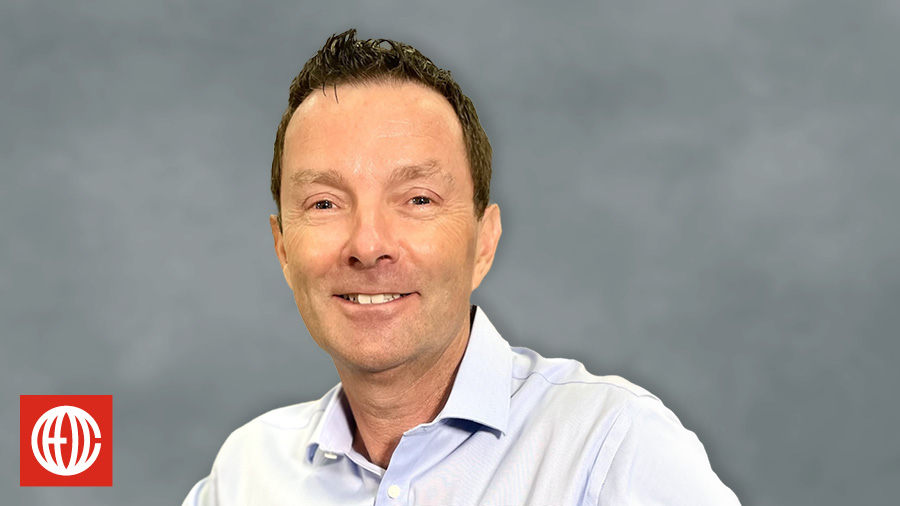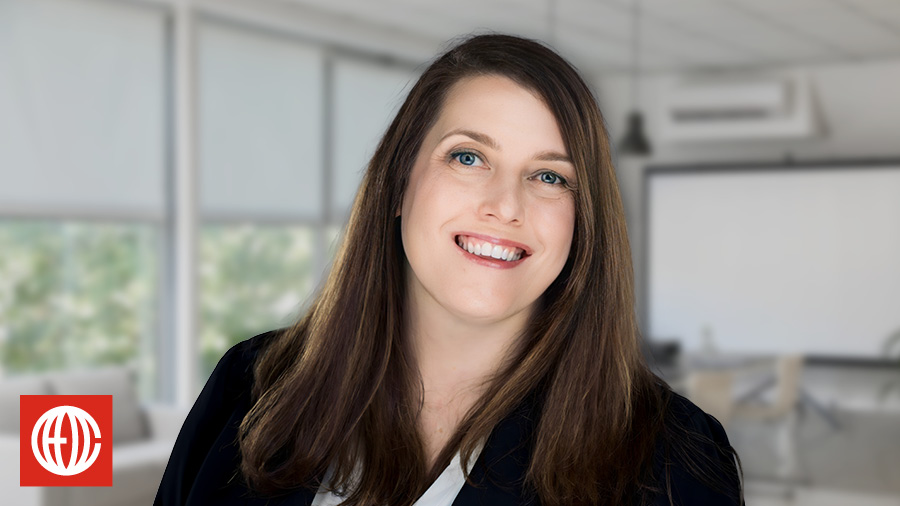
Guest: Ryan Iwamoto, Co-Founder & President of 24 Hour Home Care, which has been on the Inc. 5,000 list of the fastest-growing companies for eight consecutive years. Ryan is also an entrepreneur coaching client at CEO Coaching International.
Episode in a Tweet: These four tips will help your business to stop merely surviving and start thriving again.
Quick Background: Andy Grove, the former Chairman and CEO of Intel, famously said, “Bad companies are destroyed by crisis. Good companies survive them. Great companies are improved by them.”
Much like the 2008 recession, the pandemic is exposing structural inefficiencies and stagnant thinking that many businesses were blind to while the global economy was charging ahead. Companies that have merely survived Covid-19 so far need to turn a corner, start planning, and get back to growing before “holding steady” turns into flatlining.
Today’s guest, Ryan Iwamoto, has successfully navigated both the Great Recession and Covid-19. He co-founded 24 Hour Home Care in 2008–during the heart of the Great Recession–with a $160,000 investment. Thanks to his decisive leadership throughout 2020, the company is on track to do over $115 million in revenue this year, despite operating in an industry that’s been hit hard by the pandemic.
Keys to Growing Through a Crisis from Ryan Iwamoto
1. Don’t wait to take action.
Ryan Iwamoto’s company provides home care service for seniors, adults, and children with disabilities in Arizona, California, and Texas. As lockdowns started in March, many of Ryan’s customers didn’t want caregivers inside their homes anymore. Elective surgeries were put on hold. Ryan’s business dropped approximately 25% almost overnight.
“What really became clear pretty quickly was that we did not want to wait to take action,” Ryan says. “CEOs and leaders want to ensure we’re in charge of every decision and that every decision is correct. And sometimes we can fall into the trap of waiting to have all the answers, especially during a crisis where there’s a lot of uncertainty and a lot of imperfect information out there. I think the need for precision and correctness to make the right choices sometimes can consume us. But what I’ve learned during the crisis is that sometimes it allows you to make bold decisions and actions that you wouldn’t have taken during blue skies.”
The first item on Ryan’s must-do list was updating his infrastructure. Replacing old desktop PCs and landline phones with mobile tech let Ryan’s office team get up and running at home. That paved the way for more improvements.
“We did have our imperfections,” Ryan says, “But I always like to say, ‘Progress over perfection.’ And not only were we able to keep our employees safe, but we also saw a lot of benefit from it. We had a lot of efficiencies. We’ve pretty much eliminated all paper. Everything went digital. Our hiring went virtual as well. Our consultations where we meet with patients and their families used to be in person. Most of it has now become virtual over Zoom, which is a whole lot more efficient and safer for everybody. I think a lot of these changes that we made are going to stick with us even when we get to this new normal.”
2. Seek clarity over certainty.
So why have so many CEOs been so slow to take the kind of action Ryan took?
Because, as Ryan alluded to, CEOs hate it when we don’t have all the answers. And in the early days of the pandemic, hard facts were hard to come by, especially when it came to how to operate a business safely. Many companies that did manage to reconfigure their workforces remotely stopped at that adjustment and assumed a holding pattern.
Six months later, companies that are still gathering info — or worse, waiting for the return of “business as usual” — are in real danger of going under.
Ryan understood that WFH and Zoom weren’t enough. And his entrepreneur coach helped him narrow his focus on a mission that also provided a clear path forward.
“Doing something is always better than doing nothing,” Ryan says, “because when you’re doing something, the only fail is when you don’t learn from that failure. My coach, Sheldon Harris, told me, ‘Clarity over certainty. More is lost with indecision than the wrong decision.’ And he’s absolutely right. Even though I didn’t have all the answers I needed, I felt that my team and I were uniquely suited to make a difference at a time where the whole world was suffering. I remember telling our team, ‘Our purpose is to impact people’s lives by making a difference every day, but especially during these times. We are not only impacting people’s lives, we’re also saving them too.’”
3. Find new ways to add value.
To achieve that mission, Ryan asked himself a question that’s essential to a successful pandemic pivot: What do my customers need right now?
“This pandemic really made us find new ways to add value,” Ryan says. “It’s really forced us to look at some other areas where we can rise to meet some of the needs of our community or our clients. We’ve been able to partner with organizations that can provide much-needed services that go beyond our core service of home care.”
For example, after some initial reluctance, Ryan decided that his company would fill an important healthcare void and start accepting Covid-19 patients as infection rates were spiking. Ryan also knew that the pandemic was isolating high-risk seniors in their homes, which limited their access to nutritious food. So he partnered with GrubHub to create a new service, Grub with 24, that provides discounted on-demand meal delivery to seniors without the need for a smartphone app. Ryan also tapped a fortuitous new hire to provide Covid-19 testing services and make new connections that could benefit his business in a BIG way moving forward.
“During the start of the pandemic, I was in the process of bringing on a VP of Sales,” Ryan says. “His background was in pharmaceutical sales. And in his previous role, he actually had a relationship with a lab. Back in March and April the need for testing was skyrocketing. Many of the skilled nursing facilities that we’ve worked with were having outbreaks. So our new VP allowed us to partner with a lab here in Los Angeles. And we’re able to provide testing for not just skilled nursing facilities, but also for our employees and for our clients that need it. Did this service make up for all the business that we lost during Covid-19? No, it didn’t. But it allowed us to strengthen our relationships in the health care community and position ourselves as really the safer option when needing care.”
4. Grow as a leader.
Ryan credits his strong team and a culture that encourages feedback with helping his business reposition itself for the future. But, like many of us, he felt paralyzed at the beginning of the pandemic and questioned his abilities as a leader. With some help from coach Sheldon Harris, Ryan decided that if his business was going to maintain its growth trajectory, he had to grow as well.
“I’ve always given feedback to my team,” Ryan says, “but I never really sought to receive it, which I thought was hypocritical. So I asked my entrepreneur coach to do a 360 performance review on myself, getting both positive and constructive feedback from 14 individuals whom I work closest with. And there were definitely some things that I needed to work on, but I wanted to take it a step further. And they say the best way to hold yourself accountable is to let the world know that you’re doing it. So I took a screenshot of my weaknesses and I posted it on LinkedIn to let the world see. That was a step that I took to really tell my team, ‘This is my commitment to continuous improvement, this is how I want to strive to be a better leader.’”
You’ve spent most of 2020 progressing from crisis management to making an online pivot. Along the way, you and your leadership team have put every single aspect of your business under the microscope. Now, it’s time to turn the lens on yourself. What are your strengths? What are your weaknesses? Are you as receptive to feedback as you want your team to be?
And are you prepared to evolve along with your business so that you can make BIG happen, no matter what comes next?
Top Takeaways
1. Be decisive. If you’re still waiting for all the answers in this environment, you’ll be waiting forever.
2. Focus on your customers. Identifying and meeting their needs is still the clearest path forward.
3. Hold yourself accountable. Work with a mentor or coach who will push you to keep improving.
About CEO Coaching International
CEO Coaching International works with CEOs and their leadership teams to achieve extraordinary results quarter after quarter, year after year. Known globally for its success in coaching growth-focused entrepreneurs to meaningful exits, CEO Coaching International has coached more than 1,000 CEOs and entrepreneurs in more than 60 countries and 45 industries. The coaches at CEO Coaching International are former CEOs, presidents, or executives who have made BIG happen. The firm’s coaches have led double-digit sales and profit growth in businesses ranging in size from startups to over $10 billion, and many are founders that have led their companies through successful eight, nine, and ten-figure exits. Companies working with CEO Coaching International for two years or more have experienced an average revenue CAGR of 31% (2.6X the U.S. average) and an average EBITDA CAGR of 52.3% (more than 5X the U.S. average).
Learn more about executive coaching | Meet our world-class coaches








